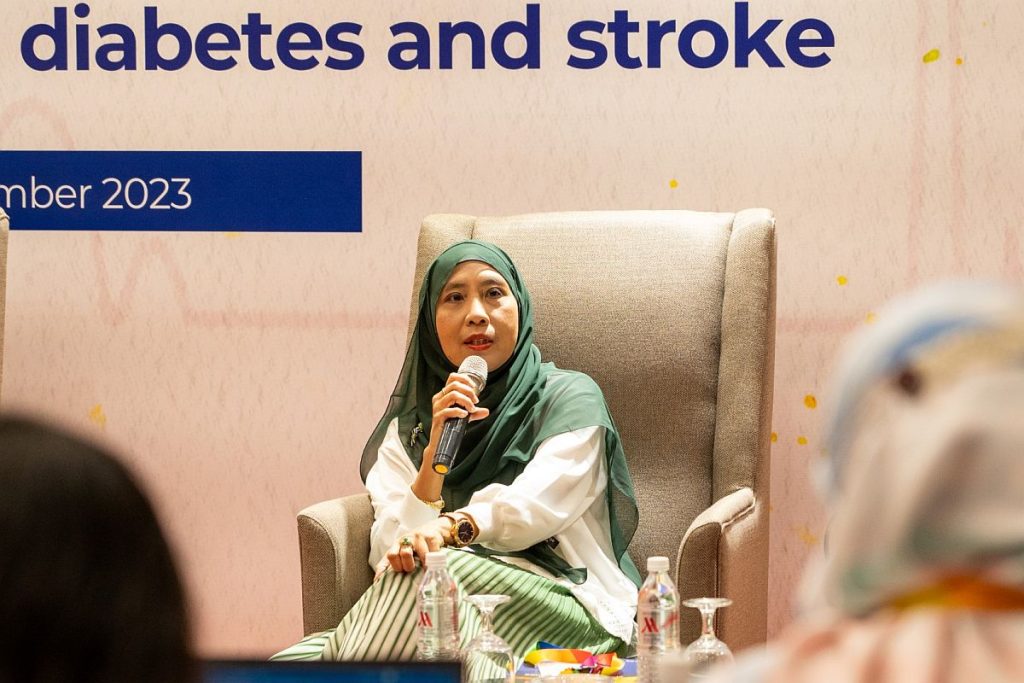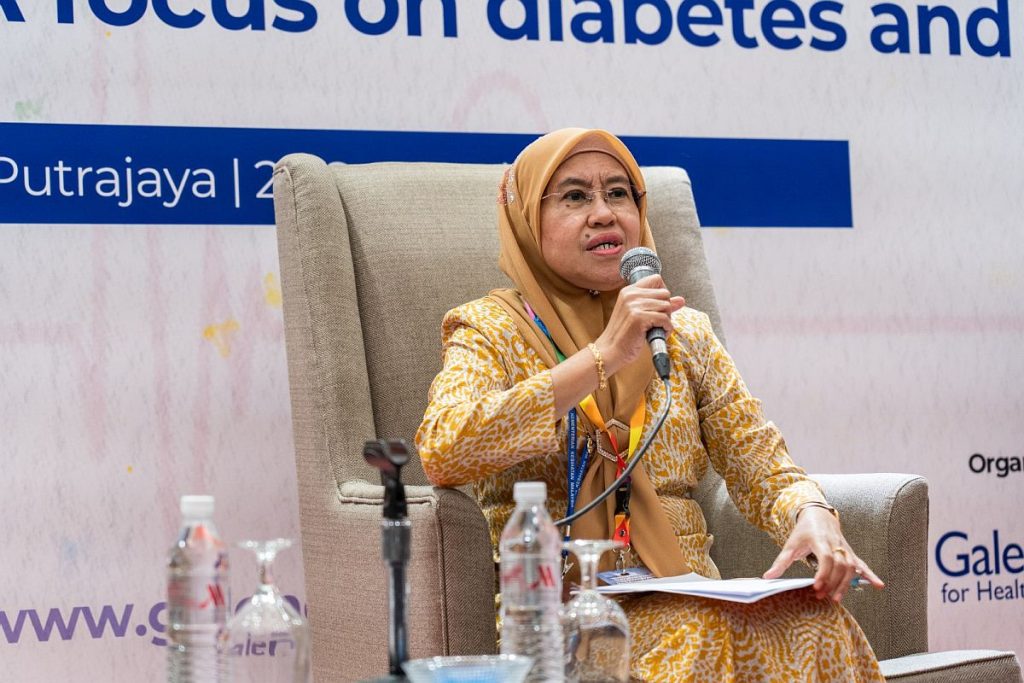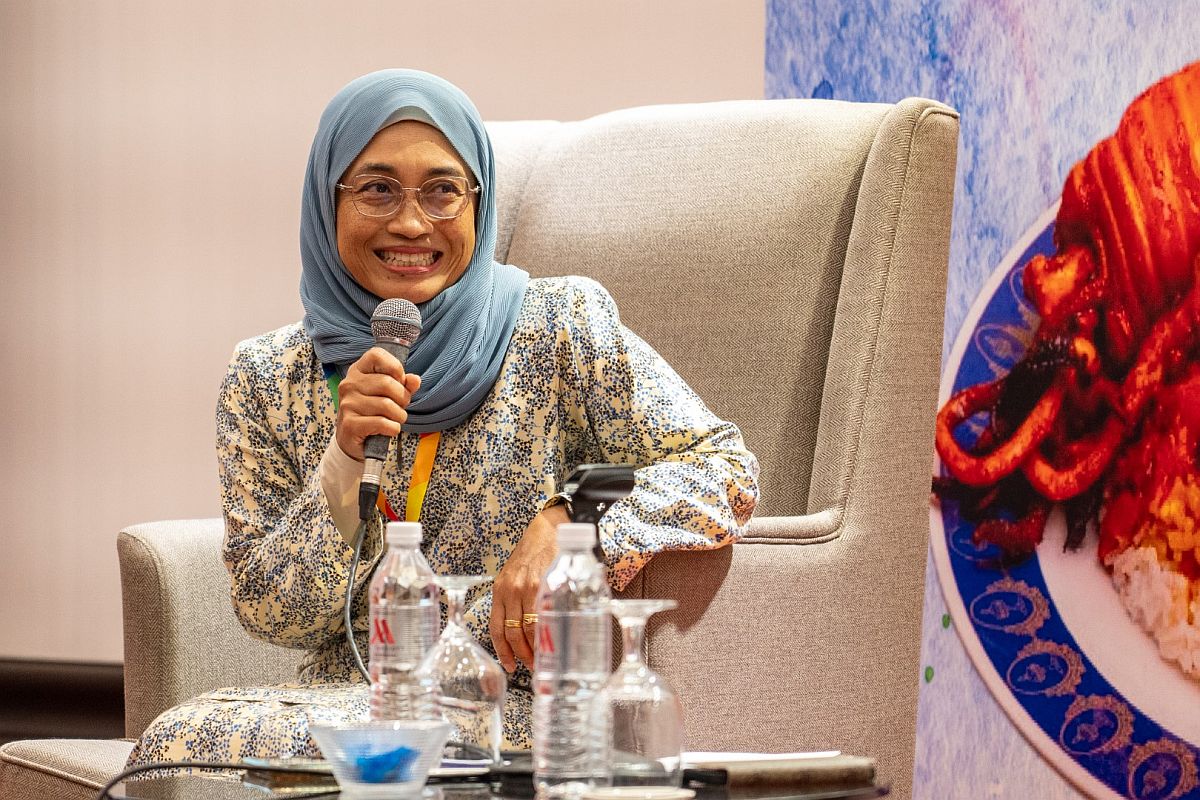PUTRAJAYA, Dec 21 – Government specialist doctors have proposed imposing fees on diabetes patients, co-payments for diabetes medication, a sugary drinks tax raise, and a ban on unhealthy food advertisements targeted at children.
Putrajaya Hospital senior consultant endocrinologist Dr Zanariah Hussein suggested a monthly or annual fee structure for patients diagnosed with diabetes in Ministry of Health (MOH) facilities to incentivise Malaysians to take greater accountability for their health.
This money can then be used by the MOH to fund more effective diabetes medications, glucose monitoring, and lifestyle intervention programmes.
“In public care, let’s say I need to pay a hundred ringgit a year because I have diabetes. So…compared to somebody who doesn’t have a disease: ‘Oh, at least I don’t have to pay, so I’m going to prevent myself from getting a disease, because I don’t have to pay that extra sum’,” Dr Zanariah told the Galen Centre for Health and Social Policy’s roundtable discussion on “Managing the National Cost of Cardiorenal Metabolic Diseases: A Focus on Diabetes and Stroke” held last September 20, with support from Boehringer Ingelheim.
She observed that diabetes patients often perceive their condition lightly, as they can easily obtain medicine at a public health clinic for a minimal sum due to huge subsidies from the government. Yet, their chronic condition remains as many do not change their lifestyle.
“We give the best of medication and spend the longest time and give multidisciplinary care, but why doesn’t it really impact the patients?” Dr Zanariah questioned.
“There’s no cost coming out from the patients, so maybe there should be this certain cost. And that cost can come back to the Ministry of Health to improve access to better medicines, to fund glucose monitoring, to fund lifestyle intervention programmes. It’s funded back to have better-organised care.”
Co-Payments For Diabetes Medication

Putrajaya Hospital consultant nephrologist Dr Rafidah Abdullah suggested offering co-payments for diabetes patients to pay partially for treatment, so that the MOH can spread its limited drug budget to cover more patients.
“My patients buy their medication. Again, there is no budget. We want to give everybody a drug that can actually delay the progression of kidney disease,” Dr Rafidah told the roundtable discussion.
She stressed the importance of prevention for chronic kidney disease to reduce the need for dialysis and transplants for people with kidney failure.
On the topic of medication and out-of-pocket (OOP) payment by patients, Malaysian Family Medicine Specialists’ Association (FMSA) president and health clinic family medicine specialist, Dr Nor Hazlin Talib, held that despite her clinic having access to new diabetes medication, she and her colleagues still need to make a case during team meetings with their superiors to receive drug allocations.
“We need to fight again during our JKU team meeting for that allocation. For example, new diabetes medication only have a few allocations. For example, only for five patients.
“Our patient actually had been buying these diabetes medication way before this medication was coming into the Blue Book [MOH drug formulary]. So we need to have this allocation specific, not only for medication but also for programmes,” she said.
Dr Nor Hazlin, who was a participant at the event, said at public health clinics, or klinik kesihatan, diabetes patients need to be equipped with their own glucometers, besides having a multidisciplinary team at the facility who should be given incentives.
“But we don’t have that allocation directly straight to the Klinik Kesihatans.”
The family medicine specialist also seconded Dr Rafidah’s call for co-payments for diabetes. For Dr Nor Hazlin, the co-payment method is not only a sustainable form of health care financing, but also a way to promote patient treatment adherence.
Having met a general practitioner who runs an addiction clinic that caters to both OOP patients and government-subsidised patients, Dr Nor Hazlin said she was told that OOP-paying patients were found to be more compliant with their treatment than patients who received government subsidies.
Dr Nor Hazlin favours the Australian co-payment model that offers co-payment schemes though private insurance and Medicare.
Medicare provides Australians with subsidised health care and specific medication under the Pharmaceutical Benefits Scheme. Beneficiaries who purchase medication under the Medicare scheme have a set amount they are required to pay, while the government bears the difference. If the cost of medication is below the co-payment amount, the patient pays everything.
The amount beneficiaries pay is dependent on whether they have a concession card. The type of card beneficiaries receive is dependent upon the individual’s situation.
However, Dr Navin Kumar Loganandan, a diabetes clinical care pharmacist who is a part of Putrajaya Hospital’s endocrine team, had a different take when it came to medication adherence.
For the type 2 diabetes medication management pharmacist, patient adherence requires a well-formulated plan.
Navin stated that patients’ treatment adherence falters due to poor education and external seasonal trends.
“If you have access to this medication, which is, I think, not really anywhere that’s close to solving our needs, but whatever we have, these patients are not even taking it rightly. They are not taking it correctly like how you want them. How do we expect to see a reduction in all this?” he said at the roundtable discussion.
“Dispensing medication does not equalise taking the medication. It is in the records. We think they have taken the medication, but we do not know what’s happening at home.
“We need a very strong multidisciplinary effort. We are happy with KKM to always support the pharmacists and all the allied health professionals in battling diabetes. So, everybody should emphasise on ensuring that the patients really know.”
Raise Sugary Drinks Tax, Ban Unhealthy Food Ads For Children

Dr Rosnah Ramly – head of sector at the MOH’s Sector of Control and Prevention of CVD, Diabetes, Cancer – said the MOH was looking at increasing the sugary drinks tax that then stood at RM0.40 per litre for sugar-sweetened beverages (SSB).
After the September roundtable discussion that Dr Rosnah was speaking at, Prime Minister Anwar Ibrahim announced in Budget 2024 a small increase to the excise duty on SSB from 40 sen to 50 sen per litre. The federal budget has since been passed by Parliament.
This SSB tax only applies to pre-packaged drinks, but not made-to-order beverages like teh tarik in restaurants or bubble tea.
Dr Rosnah also told the roundtable discussion that the MOH is working on preventing unhealthy food advertisements from being shown to children.
“That is on the way, but of course, we are facing many challenges; but we hope that we can succeed in our steps.”
The MOH head of sector added that existing programmes such as the Healthier Choice Logo – an initiative which seeks to provide point-of-sale information to consumers in making informed food choices by merely looking at the front of the food package – must be promoted so that the public understands how to make good decisions when it comes to choosing nutritious food.
Dr Rosnah explained that disease prevention measures for non-communicable diseases (NCDs) like diabetes will reduce the number of patients needing prediabetic or diabetic care.
“So, we don’t have to spend so much money on training the staff, spending money on medication and all. We have to focus on prevention and the way we communicate the point can be improved to make it more visible and more understandable to the public.”









